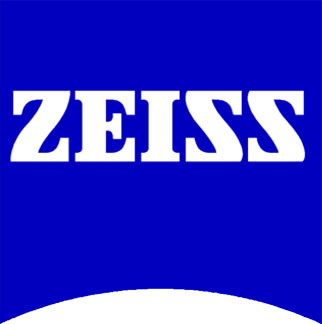News › ZEISS • Looks Back on Overall Good Fiscal Year 2019/20
 Revenue reaches 6.3 billion euros (-2% vs. prior year) – EBIT at 922 million euros (-141 million euros vs. prior year)
Revenue reaches 6.3 billion euros (-2% vs. prior year) – EBIT at 922 million euros (-141 million euros vs. prior year)
- Stability thanks to ZEISS portfolio and global positioning – even during COVID-19 pandemic
- ZEISS segments impacted differently by COVID-19 pandemic
- Strong growth over prior year in Semiconductor Manufacturing Technology segment due to EUV technology
- Significant investments in research and development pay off
- Clear recovery trend in all ZEISS segments in second half of fiscal year
Overall, the ZEISS Group had a good fiscal year 2019/20 (end of reporting period: 30 September 2020): revenue totaled 6.297 billion euros (prior year: 6.428 billion euros). With a slight decline of 2% due to the COVID-19 pandemic, revenue almost reached last year’s level. Around 90% of revenue was generated in markets outside Germany. Earnings before interest and taxes (EBIT) were also relatively high, reaching 922 million euros (prior year: 1.063 billion euros). The EBIT margin was 15%. Incoming orders increased to 6.814 billion euros (prior year: 6.575 billion euros).
»On the whole, we were able to achieve a good business result for the ZEISS Group, thanks also to our broad portfolio and global positioning. We consider this an exceptional achievement by our employees – in unusual times,« says Dr. Karl Lamprecht, President and CEO of ZEISS. »Our global crisis management, supported by resilience measures that had already been developed, helped us tackle the current challenges of the COVID-19 pandemic as well as possible.«
Segment development
The four ZEISS segments developed differently in the prior fiscal year due to the COVID-19 pandemic. Thanks especially to its innovative EUV lithography, the Semiconductor Manufacturing Technology segment hardly felt the economic impact of the pandemic. With growth totaling 12%, the segment achieved record revenue and made a substantial contribution to the ZEISS Group’s good result.
The industrial metrology business of the Industrial Quality & Research segment was affected considerably by the COVID-19 pandemic, as it intensified the structural and technological transformation of the automotive industry in particular. The aerospace market was also strongly impacted. The business with optical 3D measuring technology could be kept at the prior year’s level through an expanded customer base. On the whole, the microscopy business declined slightly. There was increased demand from the life sciences and the pharmaceutical industry. International researchers are using ZEISS microscopes to study the coronavirus and its transmission mechanisms.
In the ZEISS Medical Technology segment, the overall stable development of consumables, implants and services was able to limit a decline in revenue. The top priority was working closely together with those customers who showed an increased interest in telehealth and remote solutions as well as in utilizing digital forms of collaboration. This successfully compensated in part for the temporary fall in demand.
The Consumer Markets segment was strongly impacted by the pandemic in the spring. In the eye care business, consumers were unable to visit opticians and optometrists due to the global lockdown. Significant recovery effects were visible starting in the summer.
Key figures
Free cash flow amounted to 518 million euros (prior year: 806 million euros). The company’s equity rose by 7% as compared to the prior year, totaling 4,287 million euros (30 September 2019: 3,990 million euros).
Investments in property, plant and equipment amounted to 484 million euros in the reporting period (prior year: 437 million euros) as compared to depreciations totaling 256 million euros (prior year: 234 million euros).
At the end of the reporting period on 30 September 2020, net liquidity totaled 1,531 million euros.
The COVID-19 pandemic led to a discernible downturn in revenue, particularly in the regions EMEA and Americas. Conversely, the APAC region was once again able to grow slightly. ZEISS‹ global positioning and especially the growth in Asian countries like China and South Korea contributed to stability.
»The company’s performance shows that our measures to counter the effects of the pandemic have worked quite well. We were able to continue pursuing our long-term, global investment strategy, which comprises investments in innovations, digitalization and the expansion of infrastructure,« says Dr. Christian Müller, Chief Financial Officer of Carl Zeiss AG. »In this fiscal year, too, we have once again increased our research and development spending – to 812 million euros. This is the equivalent of 13 percent of our entire revenue.«
The acquisitions concluded during the fiscal year include the complete acquisition of the software company Saxonia Systems AG. With this acquisition, ZEISS is systematically expanding its software know-how and securing the expertise and resources to realize digital projects of strategic significance.
ZEISS has also entered into a multi-year strategic partnership with Microsoft in order to accelerate the expansion of digital services by taking a cloud-first approach. This will enable ZEISS to offer its customers an improved digital experience, react more quickly to changing market requirements and boost the company’s productivity.
»We are bolstering our digital competence by focusing on strategic partnerships, acquisitions and internal programs,« says Lamprecht. »Right now, this know-how is already being incorporated into many solutions and products and will be strengthened further.«
At the end of the fiscal year (30 September 2020), ZEISS had a global workforce of 32,201 employees, a 3% increase as compared to 30 September 2019.
Outlook
In fiscal year 2019/20, the global economy was confronted with considerable challenges resulting from the COVID-19 pandemic.
In the current fiscal year, the COVID-19 pandemic will continue to affect ZEISS – to varying degrees at the regional and segment levels. Thanks to the measures already in place, the company’s global positioning and its broad portfolio aligned with megatrends, ZEISS feels well-prepared to continue successfully maneuvering through the COVID-19 crisis. ZEISS is cautiously optimistic that it will see a slight increase in revenue in fiscal year 2020/21.
About ZEISS
ZEISS is an internationally leading technology enterprise operating in the fields of optics and optoelectronics. In the previous fiscal year, the ZEISS Group generated annual revenue totaling 6.3 billion euros in its four segments Semiconductor Manufacturing Technology, Industrial Quality & Research, Medical Technology and Consumer Markets (status: 30 September 2020).
For its customers, ZEISS develops, produces and distributes highly innovative solutions for industrial metrology and quality assurance, microscopy solutions for the life sciences and materials research, and medical technology solutions for diagnostics and treatment in ophthalmology and microsurgery. The name ZEISS is also synonymous with the world’s leading lithography optics, which are used by the chip industry to manufacture semiconductor components. There is global demand for trendsetting ZEISS brand products such as eyeglass lenses, camera lenses and binoculars.
With a portfolio aligned with future growth areas like digitalization, healthcare and Smart Production and a strong brand, ZEISS is shaping the future of technology and constantly advancing the world of optics and related fields with its solutions. The company’s significant, sustainable investments in research and development lay the foundation for the success and continued expansion of ZEISS‹ technology and market leadership. ZEISS invests 13 percent of its revenue in research and development – this high level of expenditure has a long tradition at ZEISS and is also an investment in the future.
With over 32,000 employees, ZEISS is active globally in almost 50 countries with around 30 production sites, 60 sales and service companies and 27 research and development facilities. Founded in 1846 in Jena, the company is headquartered in Oberkochen, Germany. The Carl Zeiss Foundation, one of the largest foundations in Germany committed to the promotion of science, is the sole owner of the holding company, Carl Zeiss AG.
Further information at www.zeiss.com
»We are bolstering our digital competence by focusing on strategic partnerships, acquisitions and internal programs,« says Lamprecht. »Right now, this know-how is already being incorporated into many solutions and products and will be strengthened further.«
At the end of the fiscal year (30 September 2020), ZEISS had a global workforce of 32,201 employees, a 3% increase as compared to 30 September 2019.
Outlook
In fiscal year 2019/20, the global economy was confronted with considerable challenges resulting from the COVID-19 pandemic.
In the current fiscal year, the COVID-19 pandemic will continue to affect ZEISS – to varying degrees at the regional and segment levels. Thanks to the measures already in place, the company’s global positioning and its broad portfolio aligned with megatrends, ZEISS feels well-prepared to continue successfully maneuvering through the COVID-19 crisis. ZEISS is cautiously optimistic that it will see a slight increase in revenue in fiscal year 2020/21.
Pressekontakt
Jörg Nitschke
Group Spokesman
ZEISS Group
+49 7364 20–3242
moc.ssiez@ekhcstin.greoj
